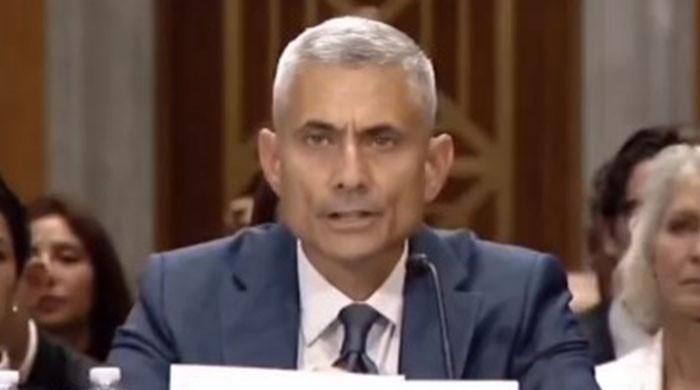Paul Kapur Pledges Cooperation with Pakistan on Security and Trade
Paul Kapur, nominated by President Donald Trump for the position of Assistant Secretary of State for South and Central Asia, has promised to foster collaboration with Pakistan in areas concerning security, as well as trade and investment opportunities.
During his confirmation hearing before the US Senate, Kapur stated his intention to pursue security partnerships with Pakistan while also seeking avenues for increased trade and investment between the two nations.
Kapur, an American scholar with expertise on India, affirmed, “If confirmed, I will continue to advance enduring US security objectives with both Pakistan and India through promoting peace, stability, and the suppression of terrorism.”
His statements are noteworthy given his demonstrated support for strengthening the strategic relationship between India and the United States and preventing Afghanistan from serving as a base for terrorist activities.
He previously stated, “If confirmed, I will back efforts to repatriate detained Americans in Afghanistan and strive to prevent the nation from once again becoming a launchpad for terrorism.”
Reflecting on the recent conflict between Pakistan and India, he commented that South Asia narrowly avoided a major escalation, with significant engagement from US figures like Vice President JD Vance and Secretary of State Marco Rubio.
These comments allude to the 87-hour conflict between the two nuclear powers, marked by cross-border attacks, which followed the incident in Pahalgam where 26 tourists were killed in Indian Illegally Occupied Jammu and Kashmir (IIOJK). India falsely attributed the attack to Pakistan.
In the wake of the Pahalgam incident, India launched unprovoked attacks on Pakistani territory for three days, targeting innocent civilians. Pakistan’s Armed Forces responded defensively with Operation Bunyan-um-Marsoos.
During the conflict, Pakistan reportedly downed numerous drones and six Indian Air Force aircraft, including three Rafales. The hostilities concluded on May 10 after 87 hours, with a ceasefire mediated by the United States.
Following the US-brokered ceasefire, in which President Trump played a crucial role, both Islamabad and New Delhi have engaged in diplomatic efforts to present their perspectives on the recent clashes.
Pakistan dispatched a high-level parliamentary delegation, led by former foreign minister Bilawal Bhutto-Zardar, to various countries to articulate Pakistan’s position on the conflict and challenge New Delhi’s narrative internationally.
The delegation, which includes Hina Rabbani Khar, Sherry Rehman, Dr Musadik Malik, Khurram Dastgir Khan, Jalil Abbas Jilani, Tehmina Janjua, Bushra Anjum Butt, and Syed Faisal Subzwari, is currently in the UK after concluding a US visit where they met with UN officials, US lawmakers, and other key figures.
These diplomatic efforts have seemingly yielded positive results, with the US Department of State suggesting that President Trump might assist in resolving the longstanding Kashmir dispute.
US State Department spokesperson Tammy Bruce noted that President Trump had offered to mediate between Pakistan and India to resolve outstanding issues, including the core issue of Kashmir.
President Trump expressed his willingness to facilitate a resolution concerning Kashmir on his Truth Social platform, a gesture that Pakistan has welcomed. India, however, has rejected the offer, asserting that Kashmir is a bilateral matter.
Kapur’s stated commitment to cooperation with Pakistan is particularly significant as he is poised to succeed Donald Lu as the Assistant Secretary of State for South and Central Asian Affairs, pending confirmation by the US Senate.
Donald Lu was at the center of controversy after allegations made by Pakistan Tehreek-e-Insaf (PTI) founder Imran Khan, who accused the US diplomat of playing a role in his removal from office.
Khan, who was removed from power through a parliamentary vote of no confidence in April 2022, has claimed that Lu orchestrated a “foreign conspiracy” against him.
Trump’s nominee’s remarks followed after the president praised Pakistani leadership as being “very strong”.



Comments (0)
No comments yet. Be the first to comment!
Leave a Comment